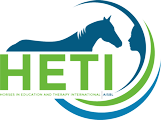HETI Ethical Guidelines
The HETI Ethical Guidelines were created as a result of feedback received from HETI members during the Open Forum at the 2018 HETI International Congress held in Dublin, Ireland. A task force was created from that meeting and they published the HETI Ethical Guidelines in April 2020 and updated in 2023. The document was never intended to be static and so the task force worked tirelessly to publish an update to the guidelines which can be seen below. We wish to thank the task force for their continued dedication and expertise.
Task force members:
- Dr. Anne Barnfield – Canada
- Dr. Anita Shkedi – Israel
- Dr. Alexandra Stergiou – Greece
- Carlos Ganzabal – Spain
- Dna Wells – New Zealand
- Harriet Laurie – UK
- Heta Rautiainen – Finland
- Roswitha Zink – Austria
- Roisin Brennan – Ireland
We hope this document will provide the benchmark of ethical practice for those offering services within the area of Equine Assisted Services.
Equine welfare guidelines have also been provided with the additional development of a HETI Equine Welfare Advisory Committee who will be able to further assist members in accessing up to date robust research outlining how we can best care for the equines who work alongside us. This ensures that the information we provide to members is related to science-based ways of handling and training horses.
It is important to note that this document is not intended to replace National Associations standards of best practice but instead the hope is that it will compliment these and provide an overarching ethical guide. This document is not static and will evolve and grow with regular evaluation and application of feedback received from members.
If you have any feedback or questions about the HETI Ethical Guidelines please contact [email protected].
HETI Ethical Guidelines Translations
Translations of this document into languages other than English are intended solely to be informative and are not legally binding. Any translations made are done so in good faith that the translations are correct. Sources must not be translated and no additions should be added to the document.
- Finnish – Finnish Translation Ethical Guidelines
- Japanese – Japanese Translated HETI Ethical Guidelines
- Swedish – HETI ETICS 2021 Svenska (1)
- Hungarian – Hungarian Translation of HETI Ethical Guidelines
- Spanish – HETI Ethics – Spanish translation
- Portuguese – Portuguese translation
- Arabic – دليل الأخلاقيات المحدث 2023 الخاص بـالأتحاد الدولي للخيل في التعليم والعلاج
